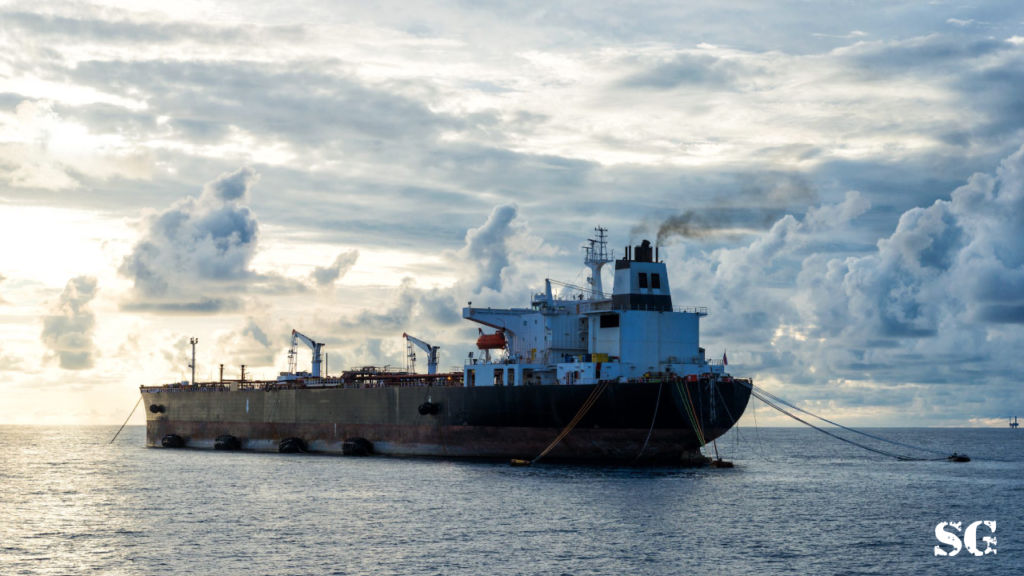Table of Contents

Russian oil cargo transferred from sanctioned tankers has been offloaded in China
Ship Unloads Russian Crude in China After Complex Transfer
A ship carrying Russian crude oil, transferred from three smaller U.S.-sanctioned tankers, completed its unloading last week at a Chinese port. Ship-tracking data reveals a month-long voyage, emphasizing efforts by producers and traders to sustain Moscow’s oil trade despite tightened restrictions.
Key Vessel and Port Details
The Panama-flagged Daban, a very large crude carrier (VLCC), was received at a berth operated by the privately-controlled Qingdao Haiye Group at the port of Qingdao. The vessel carried two million barrels of Russian Sokol oil and discharged on March 13.
Unusual Ship-to-Ship Transfers
The Daban collected oil from three Aframax-sized tankers:
- Vladimir Arsenyev on February 3
- Captain Kostichev on February 9
- Victor Konetsky on February 10
These transfers occurred at Nakhoda Bay in Russian territorial waters, a location not commonly associated with ship-to-ship (STS) transfers.
Strategic Shift in Oil Movement
Unlike international waters near Malaysia and Singapore, which are known hubs for STS transfers, Nakhoda Bay’s use signals a shift in tactics by Russian oil traders. This move makes the voyage more conspicuous to observers.
Management and Sanctions Impact
The Daban is managed by Hong Kong-based Confident Apex Ltd, but contact information for the company was unavailable. The three tankers that transferred oil to the Daban came under U.S. sanctions on January 10.
Challenges in Chinese Ports
China has openly opposed unilateral sanctions, but a sudden ban by China’s state-owned Shandong Port Group in early January complicated Russian oil shipments. This ban, coupled with Washington’s increased sanctions, initially disrupted Russian oil trade into China and India, causing freight rates to surge.
- Aframax tanker freight costs increased five-fold in February, reaching about $7.5 million for a single voyage from the Russian Far East to northern China.
The Daban was initially directed to Yantai, a key refining hub in Shandong province, but was turned away by Shandong Port Group.
Qingdao Haiye Group Accepts Cargo
After rejection by Yantai, the Daban’s cargo was eventually accepted at Qingdao Haiye Group, a privately controlled terminal. Prior to this, only a few private Chinese terminals had accepted Russian oil from sanctioned vessels following the latest U.S. restrictions.
Industry Reactions and Future Implications
Neither Haiye Group nor Yantai Port Group provided immediate comments on the situation. The ongoing use of private terminals and alternative transfer points indicates that traders are finding ways to continue the Russian oil trade despite sanctions.
This case underscores the complexities of international oil shipping under economic sanctions and highlights the evolving tactics employed by traders to navigate these restrictions.
“Russian oil cargo transferred from sanctioned tankers has been offloaded in China” “Russian oil cargo transferred from sanctioned tankers has been offloaded in China” “Russian oil cargo transferred from sanctioned tankers has been offloaded in China” “Russian oil cargo transferred from sanctioned tankers has been offloaded in China”